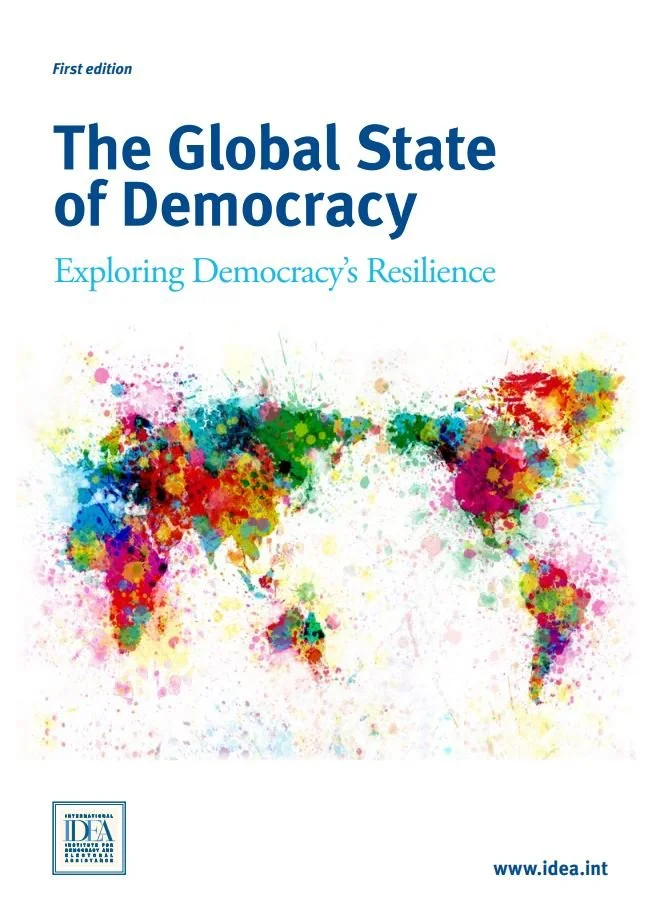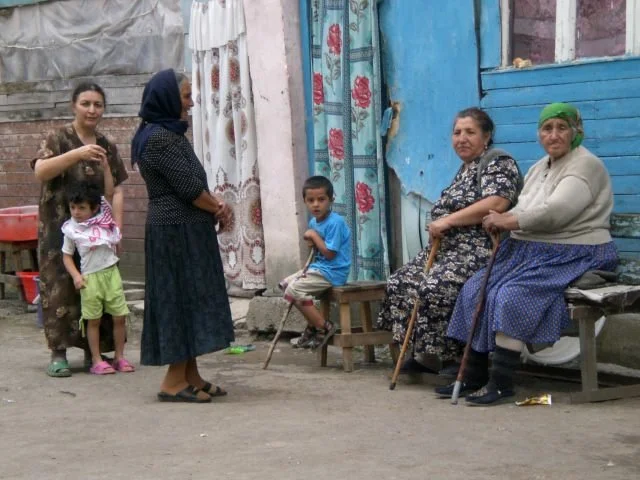Publications
Inclusion for Persons with Disabilities in Federal Democratic Myanmar
Strategies for Constitutional and Democratic Reform
This Policy Brief explores inclusion strategies for persons with disabilities (PWD) in post-coup Myanmar in the light of the ongoing transitional constitutional and democratic reform process. It highlights the challenges faced by PWD before and since the 2021 coup, including those of Myanmar’s interim government institutions in supporting PWD. It analyses how inclusive Myanmar’s interim government institutions are for PWD, and what the Federal Democracy Charter (FDC) states about including PWD in consideration of the international legal framework for PWD.
An easy-to-read version is available to download for those who have accessibility issues. It will be available soon in Myanmar language also.
The Sustainable Development Goals and the GSOD Indices, Revised Edition, GSoD In Focus No. 15, December 2023
This GSoD In Focus explores the contribution that the Global State of Democracy (GSoD) Indices can make to reviewing progress on the United Nations’ 2030 Agenda for Sustainable Development and the Sustainable Development Goals (SDGs). The GSoD Indices can be used to complement official indicators, in order to track trends in achieving the SDGs and their targets. In this regard, the GSoD Indices can be used to provide data on the SDGs for poverty (SDG 1), hunger (2), health and well-being (3), education (4), gender equality (5), inequality (10), and peace, justice and strong institutions (16).This GSoD In Focus is an update of the 2019 GSoD In Focus No. 5. It reflects updates in International IDEA’s GSoD Indices (conducted in 2023).
Interim Electoral Management and Electoral System Design in Myanmar, International IDEA Policy Paper No. 25, June 2022
In the current interim period in Myanmar, with an illegitimate military regime in power and efforts by the interim governance institutions under way to build and enable a transition to a genuine democracy, the formation of an interim EMB—like a government and a legislature—is urgent and necessary as a key institution to support and prepare for the restoration of democracy.
Inclusion and Gender Equality in Post-Coup Myanmar Strategies for Constitutional and Democratic Reform, Constitution Assessment for Women’s Equality, Brief 4, International IDEA, May 2022
This brief explores inclusion strategies for constitutional and democratic reform in the post-coup context of Myanmar. It highlights the challenges to gender equality and inclusion in Myanmar, including the role and demands of the pro-democracy actors in Myanmar’s post-coup political landscape. It analyses how inclusive Myanmar’s legitimate interim government institutions are and what the revised Federal Democracy Charter states about gender and inclusion.
Chapter: Rechtstaatspolitik im Rahmen des Europarates und der OSZE in Rechtsstaatsförderung – Handbuch für Forschung und Praxis, Kohlhammer, 2022
Die Rechtsstaatsförderung ist ein wichtiges Handlungsfeld deutscher Außen- und Entwicklungspolitik, das jedoch nicht beim Staat monopolisiert ist, sondern von zahlreichen deutschen Organisationen umgesetzt wird. Die Erfolgschancen eines Vorhabens und plausible Wirkungsannahmen setzen ein Wissen über Rechtsstaatsförderung voraus, das bislang weder in der deutschsprachigen Forschung noch in der Praxis systematisch erfasst und verarbeitet wird. Das Handbuch füllt diese Lücke, indem es erstmals umfassend die Erfahrungen der Praxis zusammenführt und diese mit den Ergebnissen aktueller rechts- und sozialwissenschaftlicher Forschung verbindet.
Co-author of GIZ Central Project Evaluation Report: “Sino-German Legal Cooperation Programme”, published May 2019
This evaluation is an interim evaluation of the technical cooperation module (PN 2014.2474.6). It covers the period 1 January 2015 to 31 March 2018, in accordance with the timeline of the evaluation. The SinoGerman Legal Cooperation Programme being evaluated had a financial volume of EUR 7,200,000 in addition to EUR 1,382,516 in cofinancing by the Robert Bosch Foundation and financial contributions by the German Federal Ministry of Justice and Consumer Protection (BMJV).
“Migration, Social Polarisation and Multiculturalism”, Chapter in International IDEA’s Global State of Democracy Publication (First Edition), Exploring Democracy’s Resilience, 15 November 2017
International IDEA launched the Global State of Democracy (GSoD) Initiative in 2016. This Initiative provides evidence-based, balanced analysis and data on the state and quality of democracy for 173 countries across the world. It aims to contribute to the public debate on democracy and inform policy interventions to strengthen democracy. The Initiative currently has several workstreams, including regional partnership hubs, digitalization and democracy, and data visualization. The Initiative’s primary knowledge products are the Democracy Tracker, the Global State of Democracy (GSoD) Indices, and the Global State of Democracy (GSoD) Reports.
“The OSCE and the Middle East and North African region: Not so fast?” – Contribution to the European Journal for Security and Human Rights, 8 January 2013
In response to the Arab Spring, many have turned their attention to the possible relevance that the OSCE could have in the Middle East and North Africa (MENA) region. Some see a value in attempting to replicate the structures of the OSCE in a Middle Eastern context; others have advocated extending the OSCE’s assistance programmes to MENA countries as appropriate. (…) This article aims to offer a brief overview of OSCE engagement efforts undertaken so far, providing a few caveats and identifying some critical challenges for consideration by the OSCE, should the participating States decide to increase its engagement in the MENA region..
UNHCR News: Azerbaijan closes last of emergency camps, 7 Febuary 2008
Displaced Azerbaijanis face a more comfortable future after the government closes the last two emergency camps and moves IDPs into new housing. (…) UNHCR, which has been playing a major humanitarian assistance role in Azerbaijan since 1993, is actively engaged in helping the government improve the living conditions and economic prospects for the IDPs. The refugee agency continues to be the focal point for IDPs in the country.








